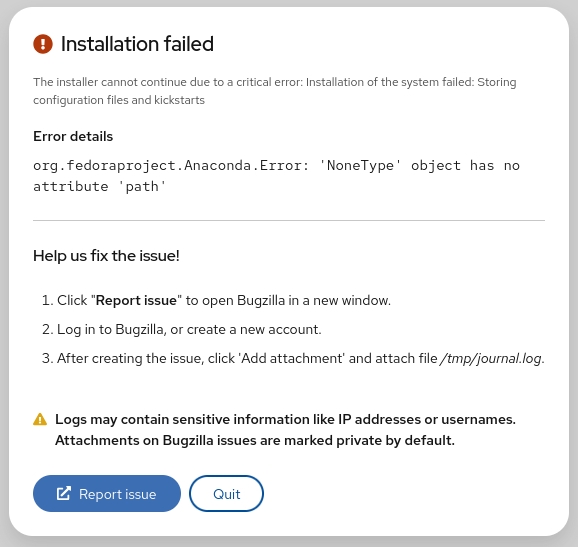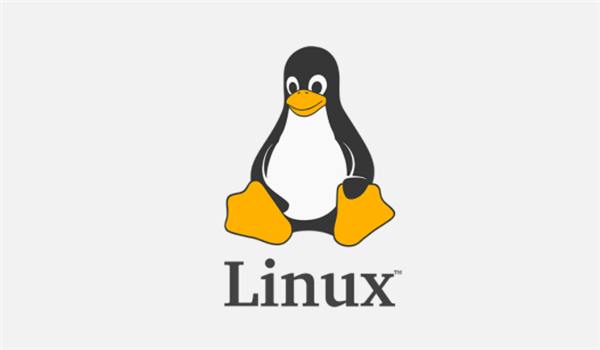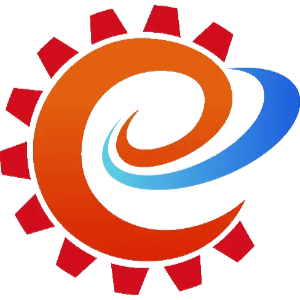|
Note
|
Sorted by popularity. |
Debian
The Debian Project is an association of individuals who have made common cause to create a free operating system. This operating system is called Debian. Debian systems currently use the Linux kernel. Linux is a completely free piece of software started by Linus Torvalds and supported by thousands of programmers worldwide. Of course, the thing that people want is application software: programs to help them get what they want to do done, from editing documents to running a business to playing games to writing more software. Debian comes with over 50,000 packages (precompiled software that is bundled up in a nice format for easy installation on your machine) - all of it free. It’s a bit like a tower. At the base is the kernel. On top of that are all the basic tools. Next is all the software that you run on the computer. At the top of the tower is Debian — carefully organizing and fitting everything so it all works together.
Fedora
Fedora Linux (formerly Fedora, formerly Fedora Core) is a Linux distribution developed by the community-supported Fedora Project and owned by Red Hat. Fedora Linux contains software distributed under a free and open-source license and aims to be on the leading edge of such technologies. Fedora has a reputation for focusing on innovation, integrating new technologies early on and working closely with upstream Linux communities. The default desktop in Fedora Linux is the GNOME desktop environment and the default interface is the GNOME Shell. Other desktop environments, including KDE, Xfce, LXDE, MATE and Cinnamon, are available. The Fedora project also distributes custom variations of Fedora called Fedora spins. These are built with specific sets of software packages, offering alternative desktop environments or targeting specific interests such as gaming, security, design, scientific computing and robotics.
openSUSE
The openSUSE project is a community program sponsored by SUSE Linux and other companies. Promoting the use of Linux everywhere, this program provides free, easy access to openSUSE, a complete Linux distribution. The openSUSE project has three main goals: make openSUSE the easiest Linux for anyone to obtain and the most widely used Linux distribution; leverage open source collaboration to make openSUSE the world’s most usable Linux distribution and desktop environment for new and experienced Linux users; dramatically simplify and open the development and packaging processes to make openSUSE the platform of choice for Linux developers and software vendors.
Puppy Linux
Puppy Linux is yet another Linux distribution. What’s different here is that Puppy is extraordinarily small, yet quite full-featured. Puppy boots into a ramdisk and, unlike live CD distributions that have to keep pulling stuff off the CD, it loads into RAM. This means that all applications start in the blink of an eye and respond to user input instantly. Puppy Linux has the ability to boot off a flash card or any USB memory device, CDROM, Zip disk or LS/120/240 Superdisk, floppy disks, internal hard drive. It can even use a multisession formatted CD-RW/DVD-RW to save everything back to the CD/DVD with no hard drive required at all.
EasyOS
EasyOS is an experimental Linux distribution which uses many of the technologies and package formats pioneered by Puppy Linux. The distribution features custom container technology called Easy Containers which can run applications or the entire desktop environment in a container. Packages, desktop settings, networking and sharing resources over the network can all be controlled through graphical utilities.
Mageia
Mageia is a fork of Mandriva Linux formed in September 2010 by former employees and contributors to the popular French Linux distribution. Unlike Mandriva, which is a commercial entity, the Mageia project is a community project and a non-profit organisation whose goal is to develop a free Linux-based operating system.
PCLinuxOS
PCLinuxOS is a user-friendly Linux distribution with out-of-the-box support for many popular graphics and sound cards, as well as other peripheral devices. The bootable live DVD provides an easy-to-use graphical installer and the distribution sports a wide range of popular applications for the typical desktop user, including browser plugins and full multimedia playback. The intuitive system configuration tools include Synaptic for package management, Addlocale to add support to many languages and Mylivecd to create a customised live CD.
FreeBSD
FreeBSD is a UNIX-like operating system for the i386, amd64, IA-64, arm, MIPS, powerpc, ppc64, PC-98 and UltraSPARC platforms based on U.C. Berkeley’s "4.4BSD-Lite" release, with some "4.4BSD-Lite2" enhancements. It is also based indirectly on William Jolitz’s port of U.C. Berkeley’s "Net/2" to the i386, known as "386BSD", though very little of the 386BSD code remains. FreeBSD is used by companies, Internet Service Providers, researchers, computer professionals, students and home users all over the world in their work, education and recreation. FreeBSD comes with over 20,000 packages (pre-compiled software that is bundled for easy installation), covering a wide range of areas: from server software, databases and web servers, to desktop software, games, web browsers and business software - all free and easy to install.
Alpine Linux
Alpine Linux is a community developed operating system designed for routers, firewalls, VPNs, VoIP boxes, containers, and servers. It was designed with security in mind; it has proactive security features like PaX and SSP that prevent security holes in the software to be exploited. The C library used is musl and the base tools are all in BusyBox. Those are normally found in embedded systems and are smaller than the tools found in GNU/Linux systems.
NixOS
NixOS is an independently developed GNU/Linux distribution that aims to improve the state of the art in system configuration management. In NixOS, the entire operating system, including the kernel, applications, system packages and configuration files, are built by the Nix package manager. Nix stores all packages in isolation from each other; as a result there are no /bin, /sbin, /lib or /usr directories and all packages are kept in /nix/store instead. Other innovative features of NixOS include reliable upgrades, rollbacks, reproducible system configurations, source-based model with binaries, and multi-user package management. Although NixOS started as a research project, it is now a functional and usable operating system that includes hardware detection, KDE as the default desktop, and systemd for managing system services.
Solus
Solus is a Linux distribution built from scratch. It uses a forked version of the PiSi package manager, maintained as "eopkg" within Solus, and a custom desktop environment called "Budgie", developed in-house. The Budgie desktop, which can be set to emulate the look and feel of the GNOME 2 desktop, is tightly integrated with the GNOME stack. The distribution is available for 64-bit computers only.
Slackware Linux
The Official Release of Slackware Linux by Patrick Volkerding is an advanced Linux operating system, designed with the twin goals of ease of use and stability as top priorities. Including the latest popular software while retaining a sense of tradition, providing simplicity and ease of use alongside flexibility and power, Slackware brings the best of all worlds to the table. Originally developed by Linus Torvalds in 1991, the UNIX-like Linux operating system now benefits from the contributions of millions of users and developers around the world. Slackware Linux provides new and experienced users alike with a fully-featured system, equipped to serve in any capacity from desktop workstation to machine-room server. Web, ftp, and email servers are ready to go out of the box, as are a wide selection of popular desktop environments. A full range of development tools, editors, and current libraries is included for users who wish to develop or compile additional software.
KaOS
KaOS is a desktop Linux distribution that features the latest version of the KDE desktop environment, the Calligra office suite, and other popular software applications that use the Qt toolkit. It was inspired by Arch Linux, but the developers build their own packages which are available from in-house repositories. KaOS employs a rolling-release development model and is built exclusively for 64-bit computer systems.
OpenMandriva Lx
The OpenMandriva distribution is a full-featured Linux desktop and server, sponsored by the OpenMandriva Association. It was based on ROSA, a Russian Linux distribution project which forked Mandriva Linux in 2012, incorporating many of Mandriva’s original tools and utilities and adding in-house enhancements. The goal of OpenMandriva is to facilitate the creation, improvement, promotion and distribution of free and open-source software in general, and OpenMandriva projects in particular. OpenMandriva has traditionally been a fixed release distribution, but in 2023 the project began releasing an alternative rolling branch called ROME.
Gentoo Linux
Gentoo Linux is a versatile and fast, completely free Linux distribution geared towards developers and network professionals. Unlike other distros, Gentoo Linux has an advanced package management system called Portage. Portage is a true ports system in the tradition of BSD ports, but is Python-based and sports a number of advanced features including dependencies, fine-grained package management, "fake" (OpenBSD-style) installs, safe unmerging, system profiles, virtual packages, config file management, and more.
ALT Linux
ALT Linux was founded in 2001 by a merge of two large Russian free software projects. By the year 2008 it became a large organization developing and deploying free software, writing documentation and technical literature, supporting users, and developing custom products. ALT Linux produces different types of distributions for various purposes. There are desktop distributions for home and office computers and for corporate servers, universal distributions that include a wide variety of development tools and documentation, certified products, distributions specialized for educational institutions, and distributions for low-powered computers. ALT Linux has its own development infrastructure and repository called Sisyphus, which provides the base for all the different editions of ALT Linux.
Arch Linux
Arch Linux is an independently developed, x86\_64-optimised Linux distribution targeted at competent Linux users. It uses 'pacman', its home-grown package manager, to provide updates to the latest software applications with full dependency tracking. Operating on a rolling release system, Arch can be installed from a CD image or via an FTP server. The default install provides a solid base that enables users to create a custom installation. In addition, the Arch Build System (ABS) provides a way to easily build new packages, modify the configuration of stock packages, and share these packages with other users via the Arch Linux user repository.
Photon OS
Photon OS is a minimal Linux container host, optimized to run on VMware platforms (though it is capable of running in other environments). Photon OS includes a small number of packages and offers users a command line interface. The default installation will often require less than 100MB of memory to run. The operating system comes with Docker pre-installed.
Tiny Core Linux
Tiny Core Linux is a 16 MB graphical Linux desktop. It is based on a recent Linux kernel, BusyBox, Tiny X, Fltk, and Flwm. The core runs entirely in memory and boots very quickly. The user has complete control over which applications and/or additional hardware to have supported, be it for a desktop, a nettop, an appliance or server; selectable from the project’s online repository.
ReactOS
ReactOS is a free and open-source operating system based on the best design principles found in the Windows NT architecture. Written completely from scratch, ReactOS is not a Linux-based system and it shares none of the UNIX architecture. The main goal of the ReactOS project is to provide an operating system which is binary compatible with Windows. This will allow Windows applications and drivers to run as they would on a Windows system. Additionally, the look and feel of the Windows operating system is used, such that people accustomed to the familiar user interface of Windows would find using ReactOS straightforward. The ultimate goal of ReactOS is to allow people to use it as an alternative to Windows without the need to change software they are used to.
Peropesis
Peropesis (personal operating system) is a small-scale, minimalist, command-line-based Linux operating system. It’s an incomplete system, but it’s constantly being improved. Also, it is a free operating system created from free software, mostly distributed under the GNU GPL or BSD licenses.
Clear Linux
Clear Linux is a minimal distribution primarily designed with performance and cloud use-cases in mind. The operating system upgrades as a whole rather than using individual packages. Extra software can be added to the system (along with associated dependencies) using pre-compiled bundles which can be accessed through the distribution’s swupd software manager.
ROSA
ROSA is a Russian company developing a variety of Linux-based solutions. Its flagship product, ROSA Desktop, is a Linux distribution featuring a highly customised KDE desktop and a number of modifications designed to enhance the user-friendliness of the working environment. The company also develops an "Enterprise Server" edition of ROSA which is based on Red Hat Enterprise Linux.
OpenBSD
The OpenBSD project produces a free, multi-platform BSD 4.4-based UNIX-like operating system. Its efforts emphasize portability, standardisation, correctness, proactive security and integrated cryptography. The project also develops the widely-used and popular OpenSSH (OpenBSD Secure Shell) software, which provides encrypted communication sessions over a computer network using the SSH protocol.
Void
Void is an independently-developed, general-purpose operating system based on the monolithic Linux kernel. It features a hybrid binary/source package management system which allows users to quickly install, update and remove software, or to build software directly from sources with the help of the XBPS source packages collection. Other features of the distribution include support for Raspberry Pi single-board computers (both armv6 and armv7), rolling-release development model with daily updates, and native init system called "runit".
Haiku
Haiku is an open-source operating system, currently in development, that specifically targets personal computing. Inspired by the Be Operating System (BeOS), Haiku aims to become a fast, efficient, simple to use, easy to learn and yet very powerful system for computer users of all levels. The key highlights that distinguish Haiku from other operating systems include: specific focus on personal computing, custom kernel designed for responsiveness, fully threaded design for great efficiency with multi-processor/core CPUs, rich object-oriented API for faster development, database-like file system (BFS) with support for indexed metadata, and unified, cohesive interface.
4MLinux
4MLinux is a miniature Linux distribution focusing on four capabilities: maintenance (as a system rescue live CD), multimedia (for playing video DVDs and other multimedia files), miniserver (using the inetd daemon), and mystery (providing several small Linux games). The distribution includes support for booting on UEFI-enabled machines.
LibreELEC
LibreELEC is "just enough OS" to run the Kodi media centre. LibreELEC is a Linux distribution built to run Kodi on current and popular hardware. The project is an evolution of the OpenELEC project. LibreELEC software will be familiar to OpenELEC users. The distribution runs on x86 desktop computers, Raspberry Pi devices and ODroid and WeTek computers.
Dragora GNU/Linux-Libre
Dragora GNU/Linux-Libre is a distribution created from scratch with the intention of providing a stable, multi-platform and multi-purpose operating system. It is built upon 100% free software. It has a very simple packaging system that allows installing, removing, upgrading and creating packages. Dragora can be an ideal distribution for those who wish to learn how a distribution works on the inside.
openmamba GNU/Linux
openmamba GNU/Linux is a distribution for personal computers (Intel i686-compatible) that can be used on notebooks, desktops and servers. It works as an installable live CD, offering out-of-the box support for proprietary graphics drivers and wireless network cards, a variety of media codecs and 3D desktop with KDE. The distribution, which has roots in the discontinued QiLinux project, uses APT for RPM and Synaptic as its package management tools.
IPFire
IPFire is a Linux distribution that focuses on easy setup, good handling and high level of security. It is operated via an intuitive web-based interface which offers many configuration options for beginning and experienced system administrators. IPFire is maintained by developers who are concerned about security and who update the product regularly to keep it secure. IPFire ships with a custom package manager called Pakfire and the system can be expanded with various add-ons.
Linux From Scratch
Linux From Scratch (LFS) is a project that provides you with the steps necessary to build your own custom Linux system. There are a lot of reasons why somebody would want to install an LFS system. The question most people raise is "why go through all the hassle of manually installing a Linux system from scratch when you can just download an existing distribution like Debian or Redhat". That is a valid question which I hope to answer for you. The most important reason for LFS’s existence is teaching people how a Linux system works internally. Building an LFS system teaches you about all that makes Linux tick, how things work together, and depend on each other. And most importantly, how to customize it to your own taste and needs.
Pisi Linux
Pisi Linux is a GNU/Linux distribution based on the old Pardus Linux with its famous PiSi package management system. It’s an operating system for desktop computer with software for listening to music, browsing the Internet and creating documents. Pisi Linux is built from scratch on a stable base, but many core user applications, such as the Firefox web browser or the VLC media player, are kept constantly up to date. To increase the distribution’s user friendliness, Flash player and many multimedia codecs are installed and pre-configured for immediate use.
Venom Linux
Venom Linux is an independently-developed, rolling-release distribution inspired by CRUX. It targets experienced Linux users. Venom uses SysV init as the main init system and BSD-like ports as software packages which are managed by a custom package management tool called scratchpkg (written in compliance with POSIX standards). The distribution offers a simple graphical desktop built around the Openbox window manager and a text-mode system installer.
Plop Linux
Plop Linux is a small distribution that can boot from CD, DVD, USB flash drive (UFD), USB hard disk or from network with PXE. It is designed to rescue data from a damaged system, backup and restore operating systems, automate tasks and more.
SliTaz GNU/Linux
SliTaz GNU/Linux is a mini distribution and live CD designed to run speedily on hardware with 256 MB of RAM. SliTaz uses BusyBox, a recent Linux kernel and GNU software. It boots with Syslinux and provides more than 200 Linux commands, the lighttpd web server, SQLite database, rescue tools, IRC client, SSH client and server powered by Dropbear, X window system, JWM (Joe’s Window Manager), gFTP, Geany IDE, Mozilla Firefox, AlsaPlayer, GParted, a sound file editor and more. The SliTaz ISO image fits on a less than 30 MB media and takes just 80 MB of hard disk space.
KolibriOS
KolibriOS is a tiny open-source operating system with a monolithic preemptive kernel and video drivers for 32-bit x86 architecture computers. KolibriOS is a fork of MenuetOS, written entirely in FASM (assembly language). However, C, C++, Free Pascal, Forth, among other high-level languages and compilers, can also be used in application development. KolibriOS features a rich set of applications that include a word processor, image viewer, graphical editor, web browser, and over 30 games.
Guix System
Guix System (formerly Guix System Distribution, or GuixSD) is a Linux-based, stateless operating system that is built around the GNU Guix package manager. The operating system provides advanced package management features such as transactional upgrades and roll-backs, reproducible build environments, unprivileged package management, and per-user profiles. It uses low-level mechanisms from the Nix package manager, but packages are defined as native Guile modules, using extensions to the Scheme language.
NetBSD
NetBSD is a free, secure, and highly portable UNIX-like Open Source operating system available for many platforms, from 64-bit AlphaServers and desktop systems to handheld and embedded devices. Its clean design and advanced features make it excellent in both production and research environments, and it is user-supported with complete source. Many applications are easily available through The NetBSD Packages Collection.
Bedrock Linux
Bedrock Linux is a meta Linux distribution which allows users to utilize features from other, typically mutually exclusive distributions. Essentially, users can mix-and-match components and packages as desired from multiple Linux distributions and have them work seamlessly side-by-side.
CRUX
CRUX is a lightweight, Linux distribution for computers running on 64-bit x86 processors. The distribution is targeted at experienced Linux users. The primary focus of this distribution is "keep it simple", which is reflected in a simple tar.gz-based package system, BSD-style initscripts, and a relatively small collection of trimmed packages. The secondary focus is utilization of new Linux features and recent tools and libraries.
Oracle Solaris
Solaris is a computer operating system, the proprietary Unix variant developed by Sun Microsystems. Early versions, based on BSD UNIX, were called SunOS. The shift to a System V code base in SunOS 5 was marked by changing the name to Solaris 2. Earlier versions were retroactively named Solaris 1.x. After version 2.6, Sun dropped the "2." from the name. Solaris consists of the SunOS UNIX base operating system plus a graphical user environment. Solaris is written in a platform-independent manner and is available for SPARC and x86 processors (including x86\_64). Starting from version 10, the Solaris licence changed and the product was distributed free of charge for any system or purpose, but after the acquisition of Sun Microsystems by Oracle in 2009, the product is once again proprietary with a restrictive licence.
Batocera.linux
Batocera.linux is a minimal distribution dedicated to running retrogaming software. The distribution is able to run on most desktop computers, laptops and several single-board computers, including the Raspberry Pi. batocera.linux can be run from a USB thumb drive or SD card, allowing it to be transferred between computers. batocera.linux is based on RecalboxOS.
Exherbo
Exherbo is a source-based Linux distribution inspired by the flexibility found in Gentoo Linux (among others). Designed primarily for developers and advanced users who are expected to take an active role in the development of the distribution, Exherbo offers a decentralised development model, original code, and a fast and flexible package manager called Paludis.
RISC OS
RISC OS is a computer operating system originally designed by Acorn Computers Ltd in Cambridge, England in 1987. RISC OS was specifically designed to run on the ARM chipset, which Acorn had designed concurrently for use in its new line of Archimedes personal computers. It takes its name from the RISC (reduced instruction set computing) architecture supported. Fast, compact and efficient, RISC OS is developed and tested by a loyal community of developers and users. RISC OS is not a version of Linux, nor is it in any way related to Windows, and it has a number of unique features and aspects to its design.
Vine Linux
Vine Linux is a supreme Linux distribution with integrated Japanese environment for desktop PCs and notebooks. Project Vine was founded by six members of the Project Japanese Extension (JPE) in 1998 and has been developing Vine Linux with help of many members and volunteers. Vine Seed, the development version of Vine Linux, is a public software repository, which all developers are welcome to join and contribute to. Out-of-the-box Kanji support is available throughout most applications and Japanese input support is provided by either the FreeWnn (or Wnn6 in the commercial "CR" edition) or the Canna input server.
Recalbox
Recalbox is a dedicated operating system for running video games on emulated retro and console platforms. Recalbox can also be used to run the Kodi media centre. The distribution’s interface is primarily navigated with a console game controller, though keyboard support is available for many functions.
Super Grub2 Disk
Super Grub2 Disk is a live CD that helps the user to boot into almost any operating system even if the system cannot boot into it by normal means. This allows a user to boot into an installed operating system if their GRUB installation has been overwritten, erased or otherwise corrupted. Super Grub2 Disk can detect installed operating systems and provide a boot menu which allows the user to boot into their desired operating system. Super Grub2 Disk is not an operating system itself, but a live boot loader which can be run from a CD or USB thumb drive.
Omarine
Omarine is a Linux-based operating system for servers. It can also be used for desktops with the GNOME or KDE Plasma option right at the login screen without any additional configuration. Omarine was originally based on Slackware Linux, but is now independently developed. It uses the RPM package management software.
PLD Linux Distribution
PLD Linux Distribution is a free, RPM-based Linux distribution, aimed at the more advanced users and administrators, who accept the trade-offs of using a system that might require manual tweaking in exchange for flexibility. Simultaneous support for a wide variety of architectures and non-conservative approach to RPM usage provide the users with a consistent environment on almost all available architectures.
OviOS Linux
OviOS Linux is an independent, storage OS which combines open source technologies to provide a dedicated, performance-oriented storage system. The goal is to keep OviOS Linux a pure storage, appliance-like OS. It targets users and admins who need a stable out-of-the-box iSCSI, NFS, SMB and FTP server. The distribution features a special command line shell called "ovios shell" which strives to simplify system management.
paldo GNU/Linux
paldo is a hybrid (source and binary), Upkg-driven GNU/Linux distribution and live CD. Besides aiming to be simple, pure, up-to-date and standards-compliant, paldo offers automatic hardware detection, one application per task, and a standard GNOME desktop.
rlxos
rlxos is an independent Linux distribution which runs on an immutable filesystem and features the GNOME desktop. The project features the Distrobox container manager to facilitate running software from multiple other distributions. It also includes support for Flatpak and includes the Bolt AI assistant.




